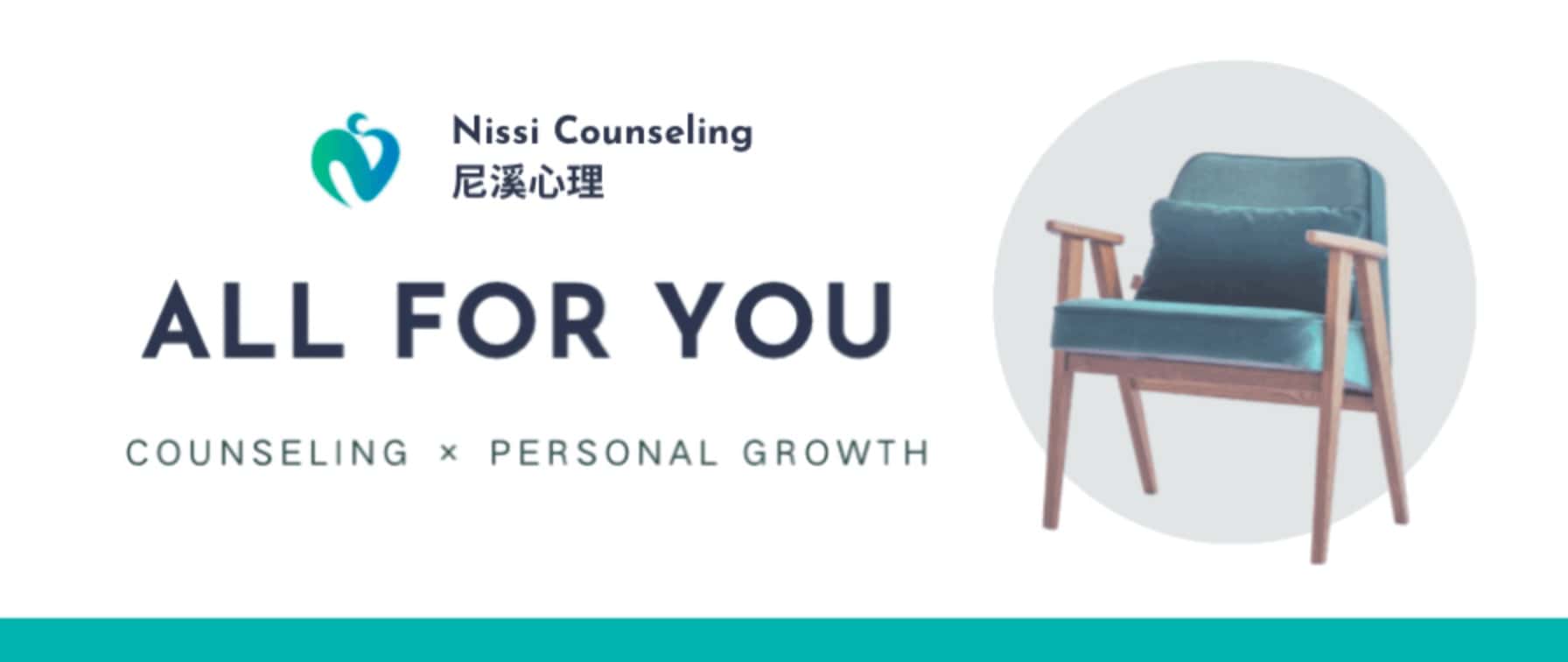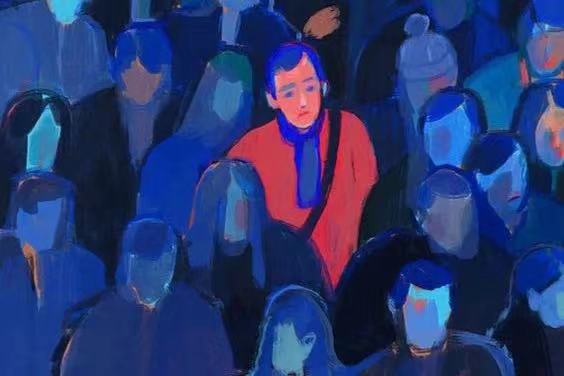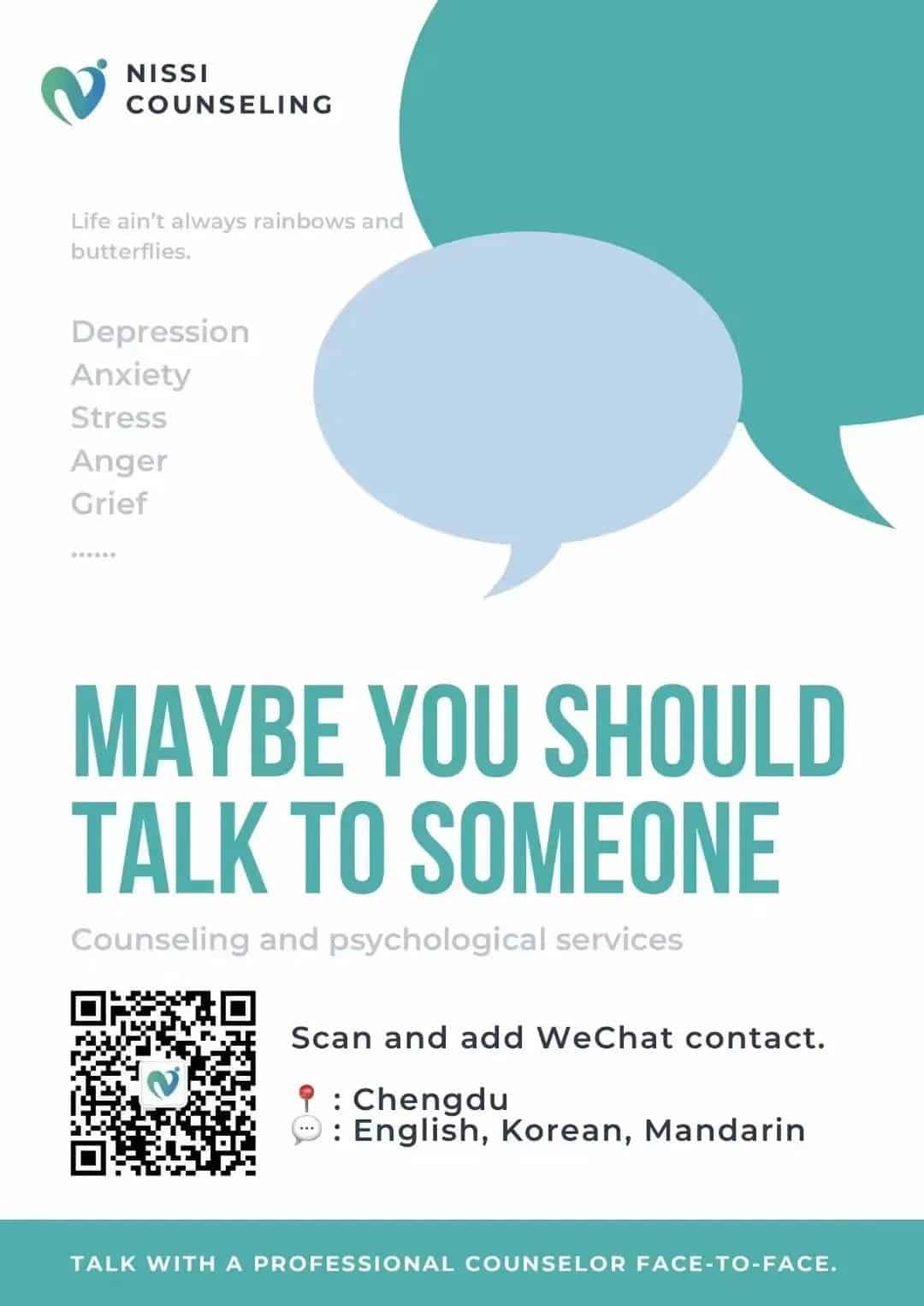• It’s not always easy to access good mental health advice, when you’re living away from home – and in Chengdu many of us suffer with seasonal affective disorder (SAD), that comes with the changes of seasons, in Winter, but also as we go into Spring.
• Depression in Spring is often intensified by environmental factors, such as sunshine, air temperature, humidity change, and excessive pollen in the air for those who are allergic. Yep, all that pollen from the grass, trees, and flowers isn’t just causing your eyes to itch and your nose to run—it may be causing your mood to tank.
• Transitions, in general, can be difficult for many. But Nissi Chengdu, who offer professional counseling, is here to help. They have been providing counseling services to many expats and clients with cross-cultural backgrounds in China for 6 years.

Are you suffering from Spring Depression?
Spring depression is more common than you might think. Here’s what you need to know about it:
- Although there is no “diagnostic manual” in April and May, our phones ring off the hook. Spring depression is a real phenomenon.
- If you find comfort indoors during the colder months, you might struggle with societal expectations, real or imagined, as this changes.
- While some people feel completely drained of energy as winter turns to spring, many have the opposite experience. Paradoxically, for people at risk of suicide, an increase in motivation can have sinister effects.

Seasonal Affective Disorder Treatments:
If you’re emerging from winter’s frigid grasp feeling unsteady and ill-prepared to face the world as the temperature rises, know that you’re not alone.
Here are some tips to help you cope:
- Light Therapy: Exposure to bright light can help regulate your body’s internal biological clock, which can improve your mood.
- Physical Activity: Regular exercise can reduce the symptoms of depression by boosting your mood and acting as a natural antidepressant.
- Healthy Diet: Eating a diet rich in fruits, vegetables, whole grains, and lean protein can help manage depression symptoms.
- Therapy and Medication: If your symptoms are severe, it may be helpful to seek professional help. Cognitive-behavioral therapy, medication, or a combination of both can be effective treatments.
Remember, it is essential to reach out to a healthcare provider if you are struggling with depression or other mental health issues.

About Nissi Counseling Chengdu:
Nissi Counseling, a psychological counseling team based in Chengdu, comprises trained professional counselors. Since 2018, we have provided counseling services to many expats and clients with cross-cultural backgrounds in China.
Besides providing counseling services, Nissi Counseling is also dedicated to general psychology education in China and promoting diversity, to truly achieve our mission “help people to help themselves”.

We can help with the following:
Counseling and Psychological Services:
· Depression, anxiety, phobia, OCD, stress, grief, and other moving and mental health issues.
· Career planning, relationship-building communication, family, and relationship problems.
· Social disorders, interpersonal communication, family and relationships problems· Children and adolescent development (emotional and behavioral problems, rehabilitation training for children with autism, ADHD, etc.)· Online counseling for returnees/ overseas students.
Group Training Services:
Emotion management, stress management, communication management, positive thinking training.
Counseling & Psychological Help for Expats:
Talk with a professional counselor face-to-face.
Visit by appointment only.
Languages: English, Korean, Chinese
Our assistant will send you an “invitation code” before your appointment, and you will be able to enter the building with the invitation code.

Information & Contact
Please feel free to add us on WeChat for professional counseling and psychological support
⇣

Address:
Zhonghai International Center Building B, No. 177, Jiaozi Avenue, Wuhou District
成都市武侯区交子大道117号中海国际B座5楼

